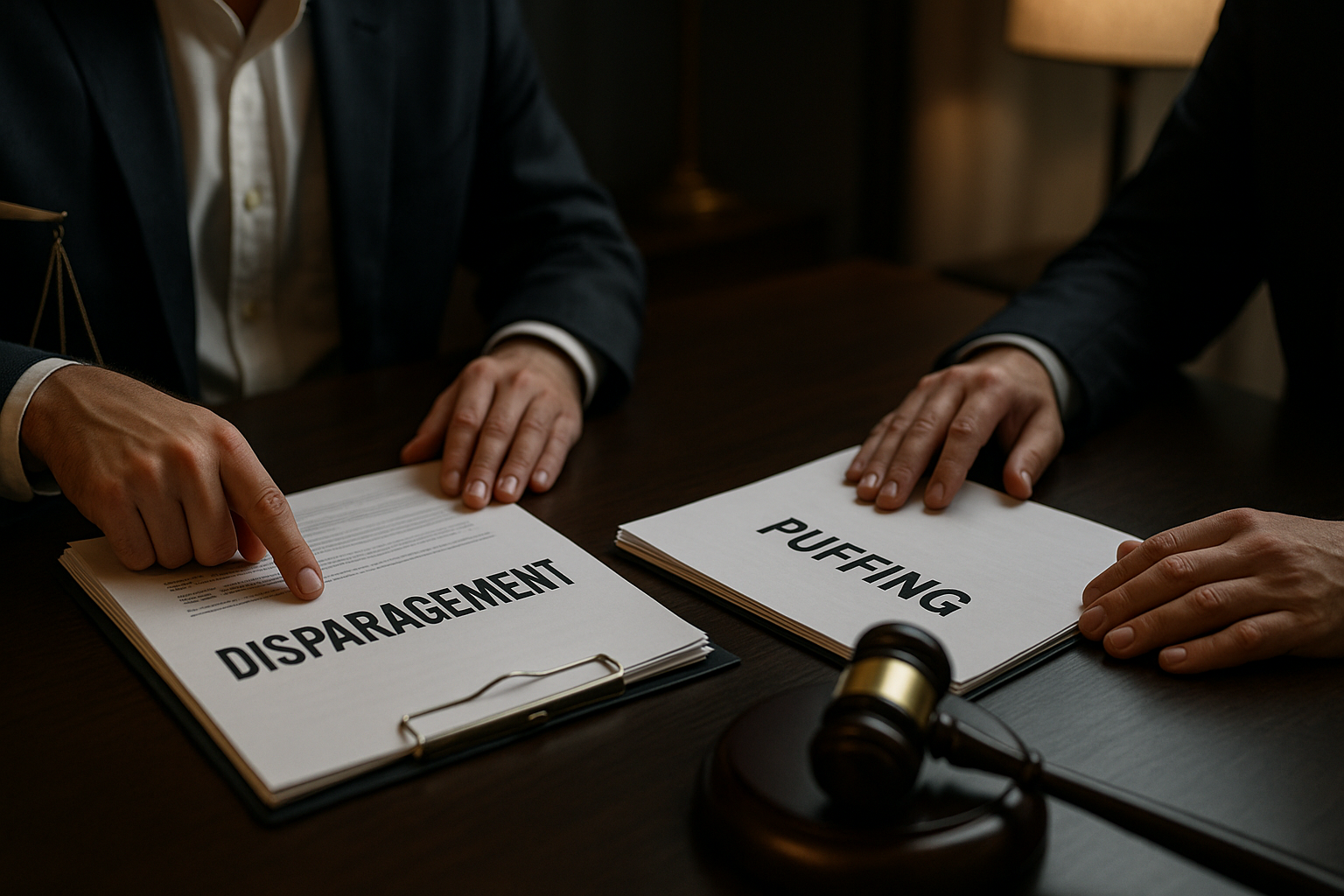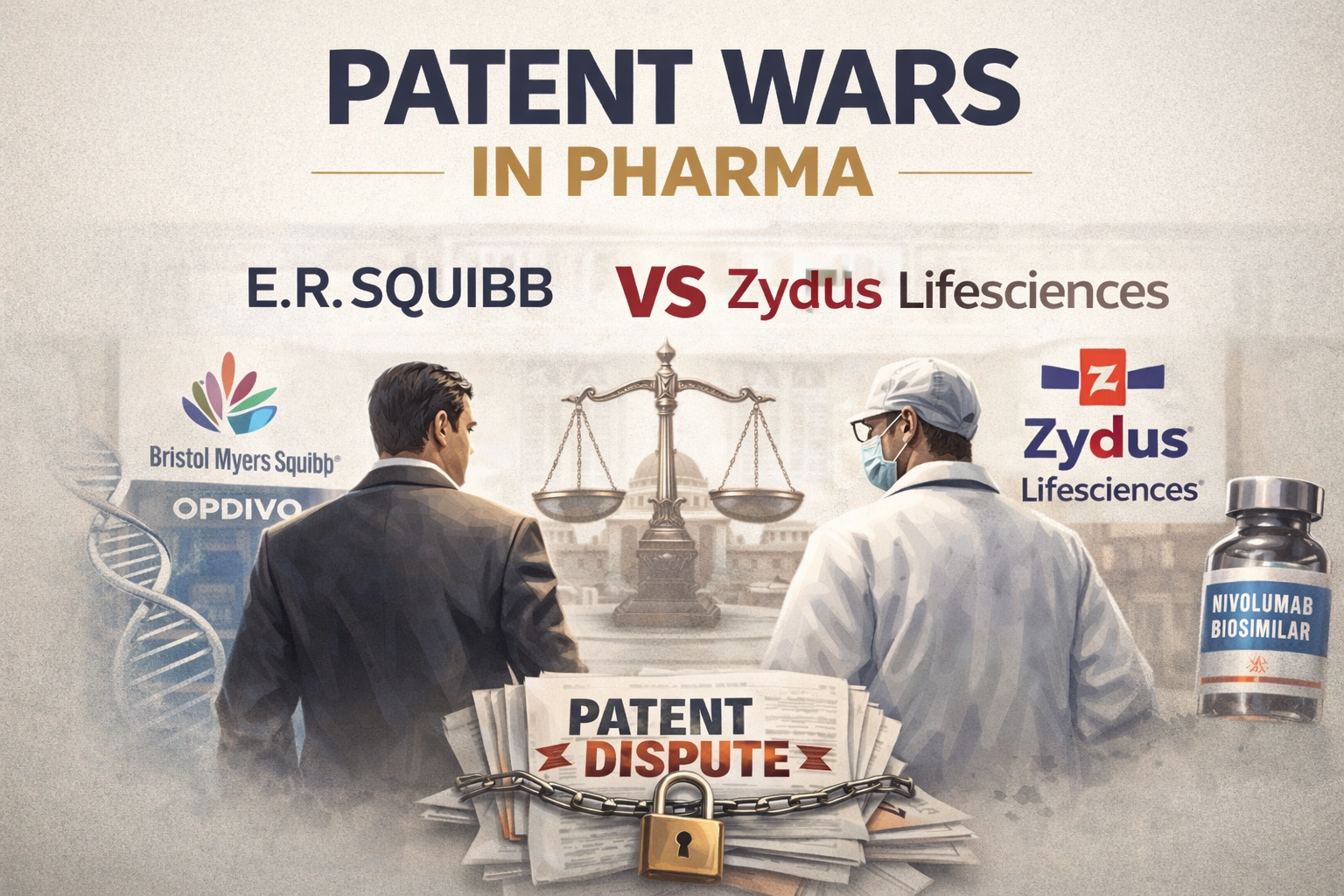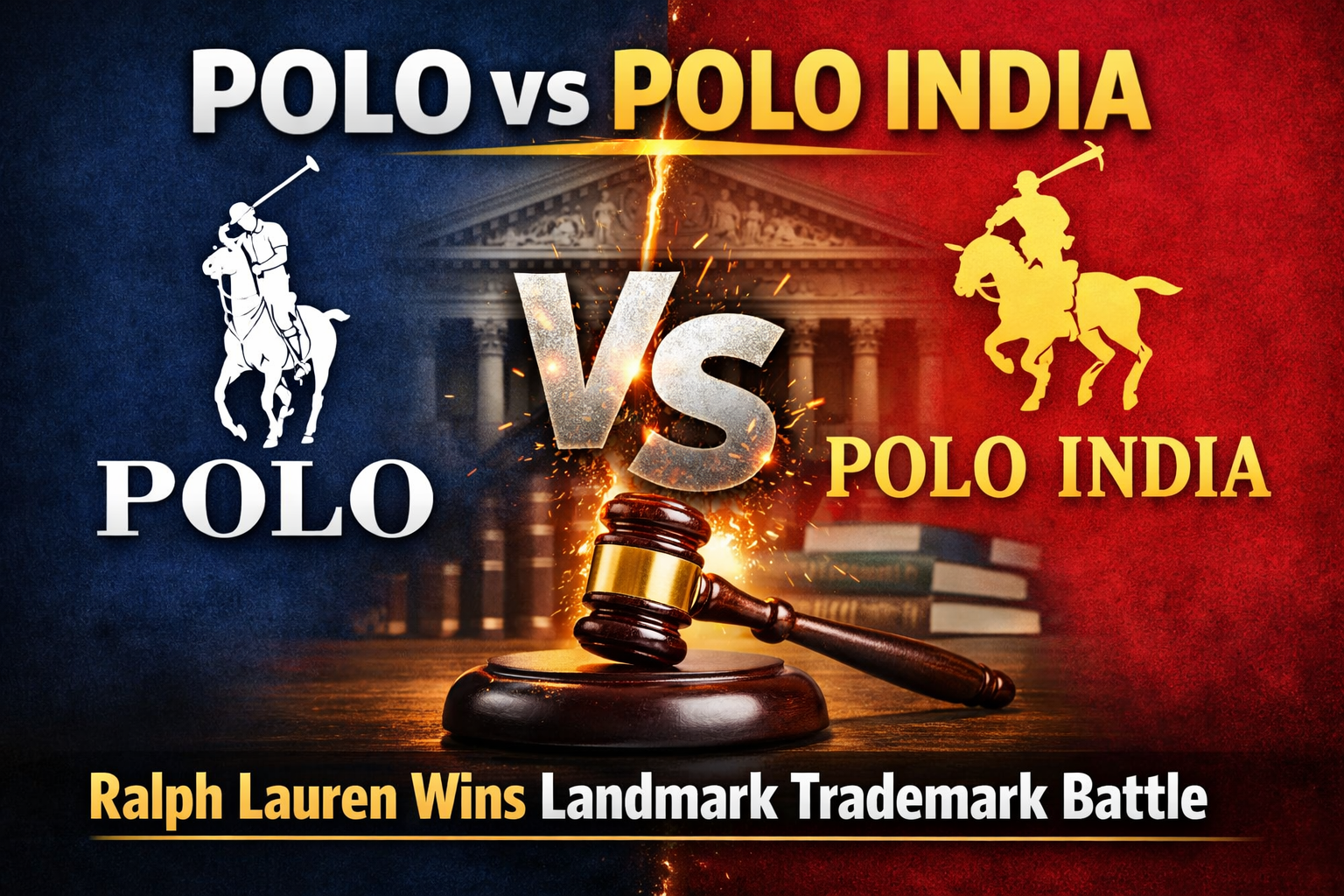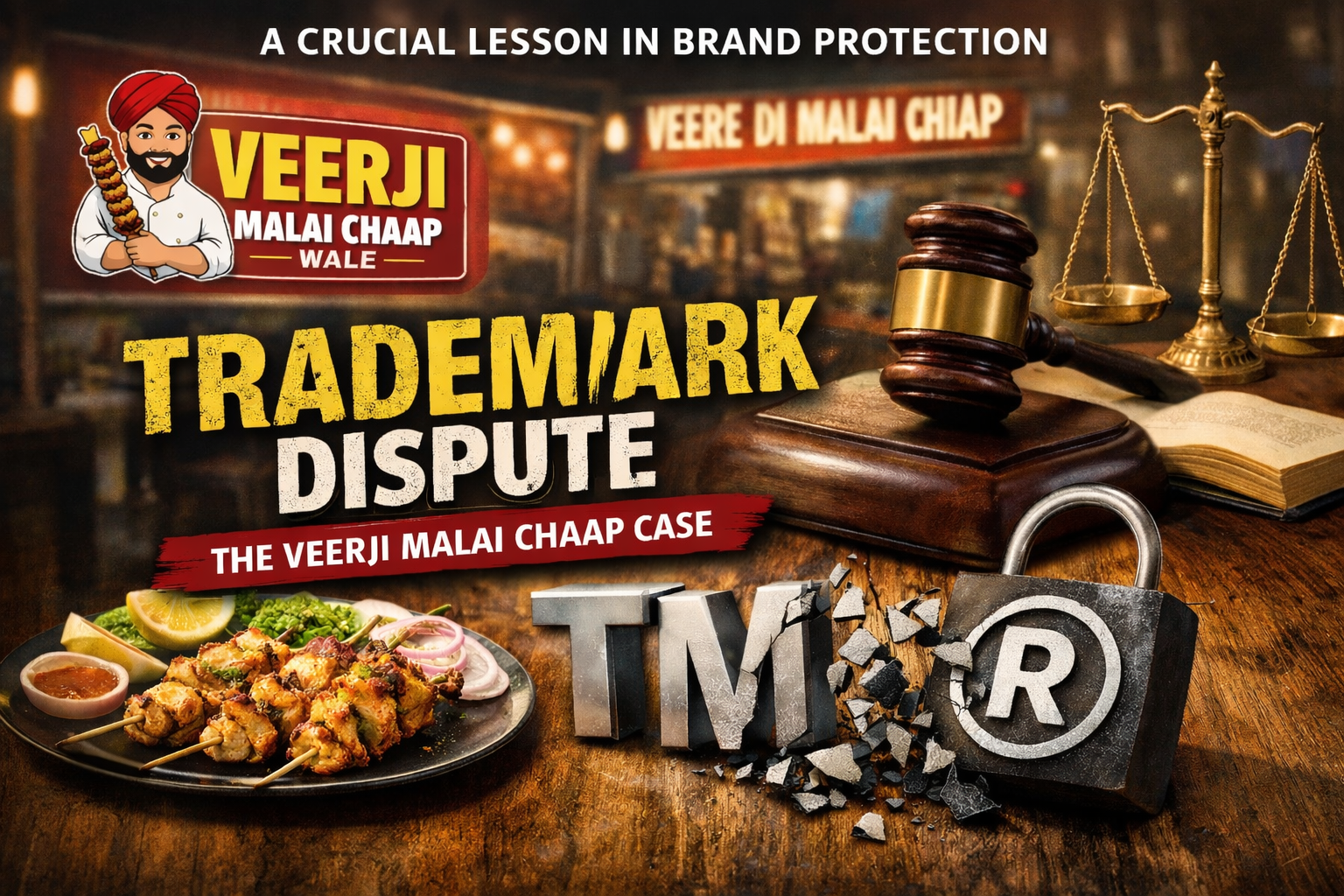
In the business world, understanding the legal consequences of disparagement and puffing is crucial for avoiding legal disputes. Both of these concepts often arise in competitive marketing and advertising, but they carry very different legal risks. This article explains these risks in detail, supported by real-world legal cases that highlight the potential consequences for businesses and individuals.
- Disparagement
Disparagement occurs when false or malicious statements are made about another business, product, or person with the intent to damage their reputation. Disparagement can lead to significant legal consequences, including civil lawsuits, injunctions, and, in rare cases, criminal liability. The key element in disparagement is that the statements are false and harm the reputation or financial interests of another party.
a) Legal Consequences of Disparagement
- Civil Lawsuits for Defamation or Trade Libel: Disparagement often leads to lawsuits for defamation (if individuals are targeted) or trade label (when businesses or products are defamed). The harmed party can sue for damages, which may include:
- Actual Damages (compensation for lost sales or business opportunities)
- Punitive Damages (to punish the defendant and deter future misconduct)
- Consequential Damages (for secondary harm caused by the disparagement, such as lost future business)
- Injunctions: A court may issue an injunction to prevent further disparaging statements. The defendant could be ordered to cease making the damaging claims and, in some cases, issue a retraction.
- Criminal Liability: While less common, criminal charges can be applied in cases where the disparagement involves fraud, such as spreading false information to deceive consumers or investors.
Colgate Palmolive (India) Ltd. v. Hindustan Lever Ltd. (1998) this case, involved Hindustan Lever’s (HLL) advertisement comparing its Close-Up toothpaste to Colgate, making misleading and disparaging claims. Colgate alleged the ad was false and defamatory, damaging its reputation. The court ruled in favor of Colgate, issuing an injunction against the ad. It held that comparative advertising is permissible but must not be misleading or harm a competitor’s reputation. The case reinforced that advertisements must be truthful, and businesses can seek legal action for defamation or disparagement in such ads. The case established that misleading ads that defame competitors’ products are actionable under defamation laws.
2. Puffing
Puffing refers to exaggerated, subjective statements made by a seller about a product or service that are not intended to be taken literally or factually. Puffing is generally allowed in advertising, but it crosses the line into illegal activity if the exaggerations are misleading or false in a way that can deceive consumers.
a) Legal Consequences of Puffing
- Deceptive or Misleading Advertising: While puffing is typically legal, it can become unlawful if the claims are misleading and likely to deceive consumers. False advertising violations could result in fines, corrective advertising orders, and lawsuits.
- Advertising Standards Council of India (ASCI): ASCI, a self-regulatory body, monitors advertising content in India and enforces guidelines to ensure advertisements do not mislead consumers. If a claim made through puffing misleads or creates a false impression, ASCI can order the advertiser to withdraw the ad, make corrections, or face penalties.
- Breach of Warranty or Contract: If puffing includes specific claims about a product that are part of a contract, such as promises of performance or quality, a breach of contract claim may arise if those promises turn out to be false.
- State Consumer Protection Violations: Indian consumer protection laws prohibit deceptive business practices under the Consumer Protection Act, 2019. If puffing is deemed to be unfair or deceptive, businesses may face penalties, including compensation for damages suffered by consumers. The National Consumer Disputes Redressal Commission (NCDRC) and State Consumer Dispute Redressal Commissions (SCDRC) can take action.
Hindustan Unilever Ltd. v. ITC Ltd. (2001), the court dealt with misleading advertising claims made by ITC about its Sunfeast brand, where it was alleged that the claims of health benefits and product superiority misled consumers about the nutritional value. This ruling highlights how puffery can cross into misleading advertising when false claims are made about a product’s benefits.
Key Differences between Disparagement and Puffing
While both disparagement and puffing involve making statements that could affect a competitor’s or consumer’s perceptions, they differ significantly in their legal consequences and the nature of the statements:
Disparagement involves false statements about a competitor, product, or individual with the intent or effect of damaging reputation or financial interests. Legal consequences are often more severe, including defamation suits, reputational harm, and even criminal liability in extreme cases.
Puffing involves exaggerated claims made in advertising, often considered sales talk, and not meant to be taken literally. Puffing becomes problematic when the claims cross the line into misleading or deceptive advertising. If the exaggerations mislead consumers, businesses can face problem.
Conclusion
Understanding the legal risks associated with both disparagement and puffing is essential for businesses to protect themselves from potential lawsuits and regulatory penalties. Disparagement can lead to serious legal consequences such as defamation suits, significant financial damages, and reputational harm. While puffing is generally a legal part of marketing, businesses must be cautious to avoid misleading claims that could lead to deceptive advertising lawsuits or consumer protection violations.
The real-world cases outlined above serve as reminders that, while puffing may be accepted in advertising, any form of false or damaging statement about competitors (disparagement) is much more dangerous and can have long-lasting consequences for businesses and individuals involved. By adhering to advertising standards and ensuring truthfulness in all business communications, companies can avoid costly legal challenges and maintain consumer trust.




Leave a Reply